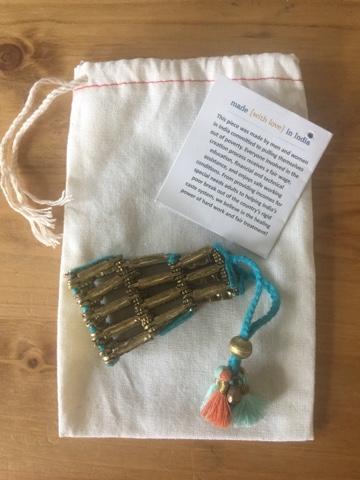This attitude extends through our nation's history as reflected in the treatment of Native Americans from Columbus to present day, and is hiding in plain sight in our revered historical documents like The Declaration of Independence and The Constitution. And it's modern-day effects are being seen in the Dakota Access Pipeline opposition in South Dakota.
| The phrase "the merciless Indian Savages", hidden in plain sight in the Declaration of Independence. |
One could argue that we live in a time where the question is not whether we are racist or not, but whether our racism is explicit or implicit. We are all racist, some of us are just better at navigating the language or posture around it. What we need now is to acknowledge it, shine a light upon it, and fix the broken parts within ourselves that allow us to think that we are somehow better than other sacred children of God.
Some of the vitriol we've seen this election season springs out of a frustration with not wanting to--or not having the vocabulary to--have the hard conversations needed to move forward: racism, sexism, xenophobia, and disregard for human life from cradle to grave are hard issues to tackle over coffee or Bible study. This is hard, holy work that will take a long, sustained effort. And we could learn a lot about effort from the Navajo.
In a break out session following his keynote speech, Mark Charles explained that Navajo time is not like "American" time. Instead of being oriented to time- and place-specific appointments on a calendar, Navajo are goal-oriented: they stay till the task is done, however long that takes. They do this out of love for the land and the desire to care for those around them.
 |
| "Hundreds of people, mostly Native Americans, gather near the Standing Rock Indian Reservation in North Dakota to protest the construction of an oil pipeline on Sept. 21. If completed, the Dakota Access Pipeline would transport 470,000 barrels of crude oil each day from North Dakota to Illinois." Jim Seida / NBC News |
That's what I've admired most about those gathered in South Dakota to resist the pipeline: they are prepared to be there until the task is complete and their goals are met. They've set up shelters, stores, even midwifery services! Those gathered and connected to the sacred ground are the true hosts and defenders of the Earth. They are showing us how to care for the land and preserve the water, because water is life. We should be listening and watching their example.
Is it any wonder we treat each other the way we do when we treat our land as a trash can or ATM machine? It's time to start talking. It's time to have the hard conversations. Though we won't fix it overnight, if we commit to work till the job is done, however long it takes, we can be reconciled to God, to one another, and to our Earth.
What hard conversations are you having lately? What hard conversations do you need to have?












